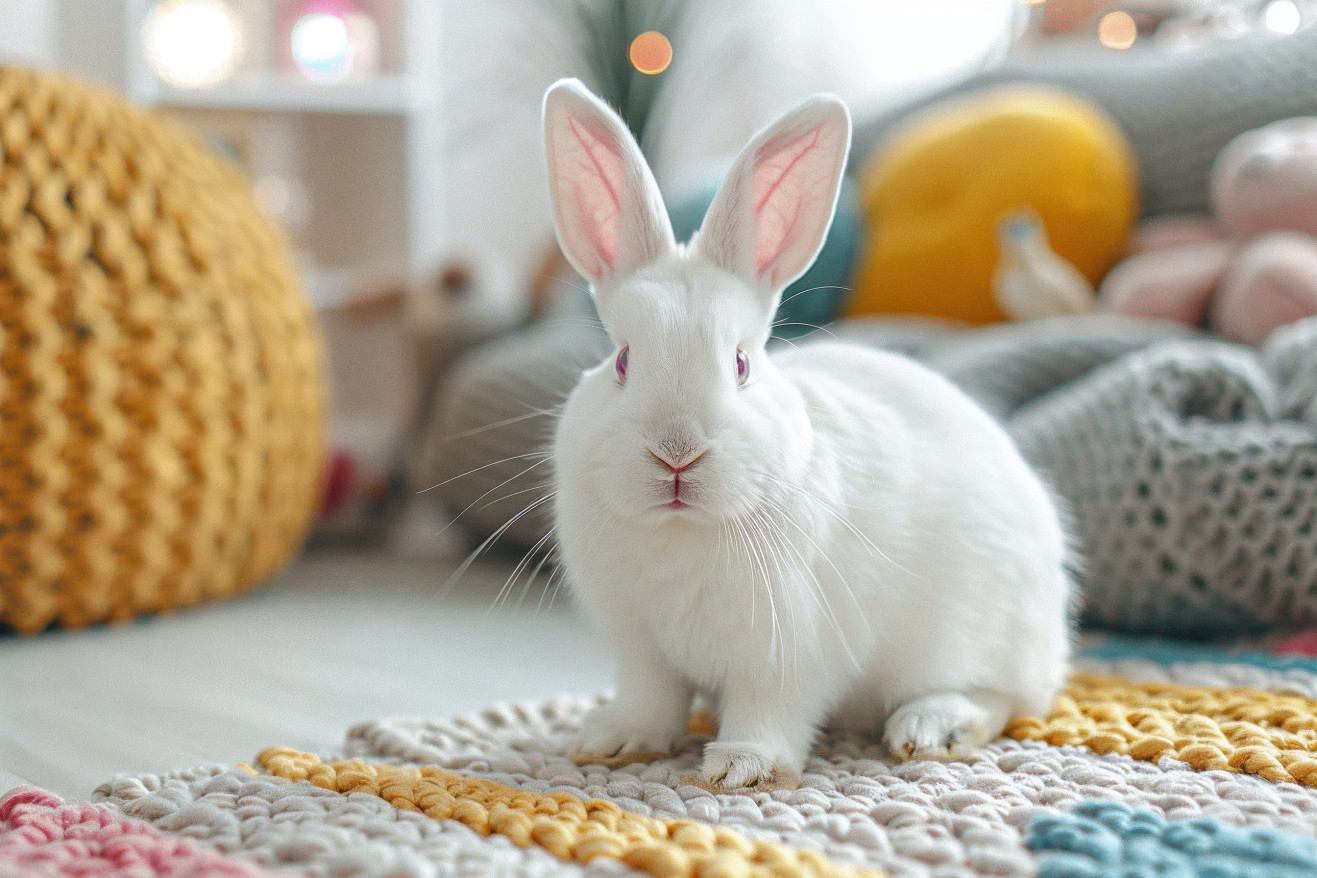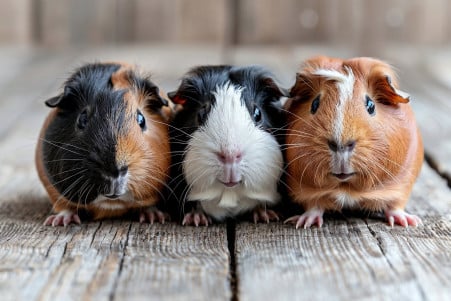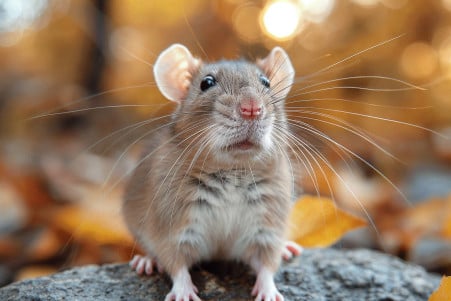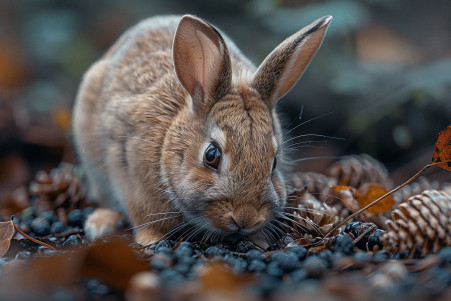Do Rabbits Fart? Unraveling the Mystery of Bunny Flatulence
18 May 2024 • Updated 17 May 2024

Despite their sweet and silent nature, one of the most pressing questions for pet owners and animal lovers is whether or not rabbits fart. The answer is yes, rabbits do fart, and they do it a lot, which is important because they are herbivores that eat a lot of fibrous foods.
In this article, we will take a deep dive into the science of rabbit farts by looking at studies conducted by veterinarians and animal behaviorists. These studies will help us understand the rabbit digestive system and the role that gas plays in their health and happiness. By the end of this article, you will have a better understanding of how to take care of your furry friend.
Do rabbits fart?
The Rabbit Digestive System: A Unique Gas-Producing Machine
Rabbits have a truly unique digestive process called hindgut fermentation, relying on a large cecum chamber and specific gut bacteria to properly break down their food. This cecum is where most of the gas production occurs, as bacteria ferment the high-fiber diet, releasing gases like methane and carbon dioxide.
While this buildup of intestinal gas is normal and actually essential for proper digestion in rabbits, imbalances in the gut bacteria can lead to excessive gas production and associated health issues. According to VCA Animal Hospitals, when rabbits stop eating, the pH in their digestive tract changes in a way that favors the overgrowth of gas-producing bacteria, creating painful gas buildup.
Therefore, it's important to understand the rabbit's unique digestive system and how it works in order to know when gas is within a normal range and when it's a sign of a more serious problem. Excessive gas can be a sign of other issues, and it can also be a sign that your rabbit's diet needs to be adjusted.
What Causes Rabbits to Have Gas: Diet and Other Factors
A rabbit's diet is the most common cause of gas, and some foods that are high in carbohydrates, sugars, and starches can lead to gas. Per Bunny Lady, other causes include feeding new foods too quickly, a lack of fiber from hay, and feeding rabbits human foods that they shouldn't eat, which can all lead to an imbalance of gut bacteria.
Other causes of gas include a lack of exercise, dehydration, stress, fur ingestion, antibiotics, and other medical issues. The Well Kept Rabbit says that while some rabbits are more prone to gas than others, knowing what causes gas can help you avoid it from building up to dangerous levels.
Foods that can cause gas in rabbits include muesli-style rabbit food, fruits and vegetables that are high in sugar, and vegetables that are high in starch, like potatoes and corn. The Rabbit Welfare Association & Fund explains that because each rabbit's gut has a unique bacterial makeup and each rabbit produces different amounts of gas, it's impossible to know how a certain food will affect each individual rabbit.
When Gas Is a Problem: Signs of Serious Bloating and GI Stasis
While some gas is normal, too much gas can lead to bloating and a life-threatening condition called GI stasis. Vets-Now explains that GI stasis happens when the normal, regular, wave-like movements of the intestines slow down or stop, which allows bad bacteria to grow in the gut and causes bloating.
Symptoms of GI stasis include a loss of appetite, a lack of fecal pellets, lethargy, and abnormal gut noises or a hard, bloated belly. Bunny Lady says that if your rabbit is experiencing any of these symptoms, it is an emergency and you should call your vet immediately. Best4Bunny notes that the first 12 hours are critical, and you should act fast to save your rabbit.
GI stasis needs to be treated by a vet right away because if the gut stops working, it can be fatal. My House Rabbit explains that treatment can include drugs to get the gut moving again, painkillers, changes in diet, and probiotics to restore the gut's healthy bacteria. It's important to catch and treat gas-related problems early to prevent them from becoming life-threatening.
Diet and Prevention of Rabbit Gas Issues
According to the Rabbit Advocates, a high-quality diet that is high in fiber and includes unlimited fresh hay is key to preventing digestive issues in rabbits. The Rabbit Welfare Association & Fund also notes that gas can be prevented by avoiding sugary, starchy, and carbohydrate-rich foods and certain gas-producing vegetables like kale, cabbage, and broccoli.
It's also important to introduce new foods slowly and carefully and to watch for any signs of digestive issues. Diets should be tailored to the specific needs of each rabbit. Hastings Veterinary Hospital suggests a general feeding plan that includes unlimited hay, 1-2 cups of vegetables, and a small handful of pellets per day.
In addition to diet, VCA Animal Hospitals notes that regular exercise, stress reduction, and proper hydration are also important in preventing gas in rabbits. These steps can help rabbit owners ensure that their pets are as healthy and comfortable as possible.
Do Other Small Pets Fart? A Look at Rabbits vs. Guinea Pigs and Hamsters
Rabbits aren’t the only small pets that fart. In fact, guinea pigs and hamsters also fart as part of their normal digestive processes. Vox notes that farts are just gas that’s released from the opposite end of where an animal’s mouth is, which means that farts are a part of many animals’ lives.
That said, the frequency and severity of gas issues can differ between animals based on their diets and digestive systems. The Veterinary Partner notes that more than 99% of the gas that’s released from the intestinal tract is odorless, but the 1% that’s not is caused by bacteria in the colon that’s fed by a high-fiber diet. This means that gas can be a bigger issue for some small animals than others.
That said, some animals may be more prone to gas than others, Falls Village Vet Hospital explains that excessive or smelly gas can be a sign of an underlying health issue in any animal. Knowing more about the similarities and differences in gas production in small animals can help pet parents better understand when there’s a problem before it becomes a bigger issue.
When to Get Help for Rabbit Gas
If you notice your rabbit is experiencing excessive or prolonged gas, bloating, or a lack of appetite, it’s time to call your vet. Vets-Now explains that GI stasis happens when the normal, regular, wave-like movements of the intestines slow down or stop, which allows bad bacteria to accumulate in the gastrointestinal tract and cause bloating.
Veterinary care will often include medications that help stimulate gut motility, pain medication, dietary adjustments, and probiotics that can help rebalance the good bacteria in the gut. My House Rabbit notes that it’s important to get help quickly because gas can lead to life-threatening conditions like GI stasis if it’s not treated.
Regular vet visits and open lines of communication with your vet can help ensure your rabbit’s digestive health and catch any potential problems. The Rabbit Advocates recommend that it’s important to address gas-related issues before they become more serious to help ensure your furry friend’s health.
Conclusion: Accepting the Inevitable Gas of Our Furry Friends
Gas is a normal and necessary byproduct of the digestive process for rabbits and other herbivorous animals. Knowing more about the digestive systems and gut bacteria that play a role in gas production can help pet owners make sure their animals are as healthy and comfortable as possible.
While gas can be a sign of an underlying health issue, a healthy diet, regular exercise, and medical care can help rabbits avoid and deal with gas-related health problems. By accepting the truth about rabbit flatulence, pet owners can make sure their furry friends are as happy and healthy as possible.


